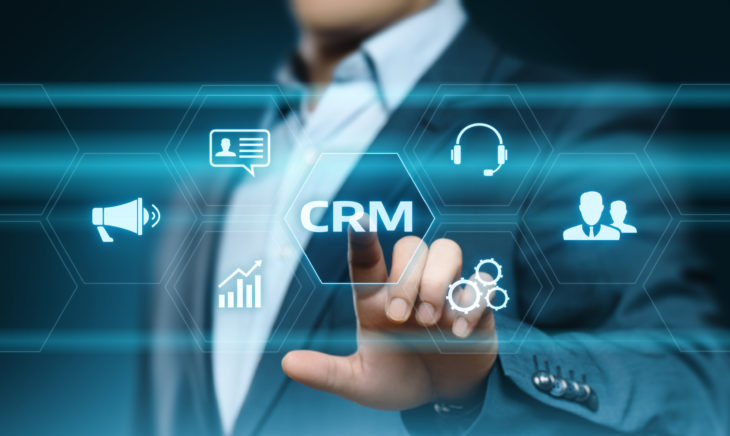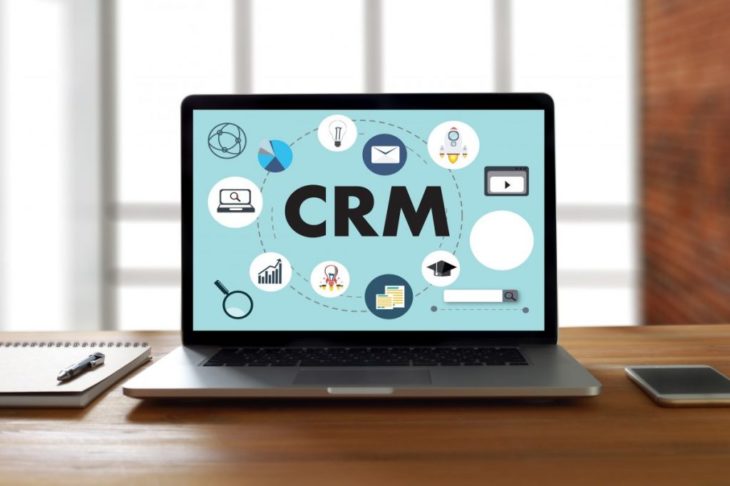CRM stands for Customer Relationship Management. CRM platforms are vital to keep your sales levels high. They help you keep track of customer needs, repeat clients, and market changes. Thus you need a CRM management system, which is what we’ll discuss today!
CRM Software Benefits

Source: Atlas Solutions Group
CRM platforms aren’t just databases for storing contact info. Their roles are much more sophisticated than that. CRMs are easier to use than spreadsheets. They’re designed to easily filter information. Plus, they let you store a variety of details per customer.
Such As?
You can store multiple contact details (such as address, phone numbers, and emails).
You can also store information based on age, sex, and job. You can then adjust your marketing based on the demographics collected.
It makes it easy to find prospects for niche products. It also makes it easy to cross-sell or follow up with promising leads.
Sales Tracking
CRM databases collect transactions of repeat clients.
You can use the info to better understand your market. You can also use it to better resolve customer complaints.
Your business can design loyalty programs based on CRM information. You can setup your rewards system to better appease your customers.
Picking Your Software

Source: My Digital Nomad
There are many CRM platforms on the market to try.
Each platform comes with a set of pros and cons. Some work for certain business models, and others do not.
Below, we’ll discuss how to pick a platform. Specifically, we’ll look at the following…
- Usability.
- Support System.
- Pricing (with extra features).
- Online Social Options.
- Automated Marketing.
Following that, we’ll list the top 3 CRM platforms to try!
(For an excellent platform, try Nextiva. It’s a solution for all business models)!
1. Usability
Your CRM platform should be used-friendly. Basic functions shouldn’t require a multi-step series of actions. You should never need to click (or open) multiple tabs for a simple function. To evaluate usability, simply check how easy it is to train someone with said platform. You can find information on CRM’s user-friendliness through online reviews. Be sure to read in-depth user experiences. Also, look for outlined platform faults.
Speaking of faults…
2. Support System
A good CRM gives you error messages that are helpful (when you take a wrong action).
They also guide you on fixing those errors. They save you the need to contact customer support.
This is done through detailed messages on how to fix incorrect actions. Alternatively, the platform should come with a manual on basic functions.
Another option is an online FAQ. Good platforms provide a section that discusses usage issues.
3. Contacting Customer Support
You should only need customer support for major fixes.
Speaking of that, you should check your purchase contract with regards to what is supported.
Be wary of gaps in the offered support plan. Sometimes, a platform will offer support in terms of price tiers. That is, you might end up having to pay more for the support you desire.

Source: Digital4
4. Pricing (With Extra Features)
Most buyers gauge affordability by looking at the price tag. But, there’s more to what you pay than the actual platform.
First, there is the cost to “use the software.” After all, a business needs to train employees on the new platform.
There’s also integration with old equipment. Following that is the need for new devices, tablets, and smartphones.
5. Price Evaluation
Look at the resources available to train staff, upgrade hardware, and get new CMS software. Then, hone in on what’s efficient for business.
If possible, pick a system that your employees are already familiar with. So if you’re using a SaaS model, then purchase that.
Or, if they’re using a cloud-based system – then that’s what you should consider.
6. Online Social Options
You need a platform that’s adaptable to your marketing channels.
For example, if you’re using email to market, then you need a CRM that can collect detailed info from email.
If you’re using social media channels – then you need a CRM that works with the websites you use.
7. What About Mobile Marketing?
½ of those who use the internet do so from mobile. So this is less of an option, and more of a requirement.
Your CRM of choice should collect customer info from mobiles.
Also, look for a CRM that has a mobile app. This allows flexibility in use, especially if the system is down or being maintained.
8. Automated Marketing Features
CRMs are meant to keep track of customer behavior (and repeat clients). Thus, you need a CRM with marketing automation.
You need reminders to follow up with certain customers. You do so to resolve complaints, finalize purchases, and market after trial periods.
Also, CRM platforms should come with a system that lets you manage leads.
Thus, opportunities that are still be converted should have their own database and automation schedule.
Picking the CRM for Your Business

Source: Technected
There are many platforms you can try. Below, we’ll list the best 3 we can find, in addition to their pros and cons!
1. Apptivo CRM
One of the market’s most customizable platforms. It’s affordable, and it’s easy to train employees in its use.
The platform comes with round-clock support, and it works with mobile. Plus, its security level is excellent, so you’ll never worry about customer information getting stolen!
Its only problem is the lack of third party integration. So it works for small businesses only.
2. Zoho CRM
If your marketing is email-centric, then this is the platform for you.
Zoho provides a plethora of email marketing tools. It’s easy to integrate with the Google G Suite, and its reporting is meticulous.
Plus, you can automate marketing with ease. However, note that this option is only available for Zoho’s professional edition.
3. Salesforce Sales Cloud Lightning
Another highly customizable platform. It comes with many advanced features. Plus, you get a 30 day trial for testing.
Also, it’s excellent for large teams, since this platform has social collaboration features.
Pros aside, this app is difficult to get used to. It has a long learning curve, especially for lead management and generation functions.
